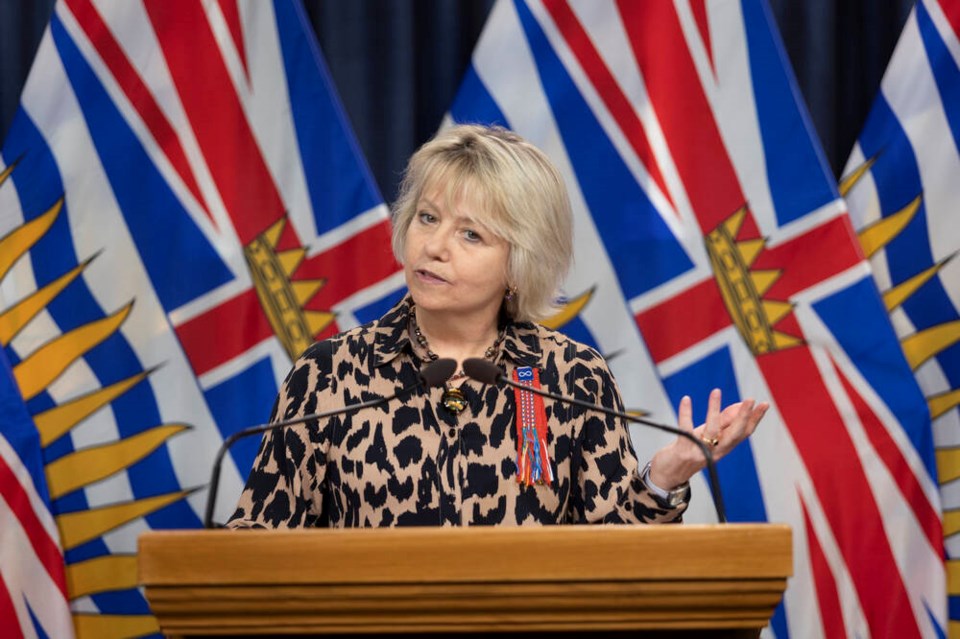British Columbians who have COVID-19 are no longer required to self-isolate.
That’s according to the most recent guidance from the B.C. Centre for Disease Control, with little fanfare on Nov. 17.
“Starting Nov. 17, 2022, people who have COVID-19 are no longer required to self-isolate,” new language on the website states.
Before the change, the website had stated that fully vaccinated individuals “need to self-isolate at home for five days and until your symptoms improve and you no longer have a fever.” Unvaccinated adults were required to self-isolate for 10 days.
The new guidance doesn’t differentiate between vaccinated and unvaccinated people.
Dr. Bonnie Henry made a passing reference to the change during Wednesday’s news conference, saying the surge in influenza and respiratory syncytial virus (RSV) cases meant it was no longer possible for people to tell which illness they were showing symptoms of.
“One of the things that we’ve had in place for a long time is saying if you have COVID you need to stay home for five days. That’s no longer relevant in the setting that we are in now,” she said.
“Instead, if you have symptoms of any respiratory illness, the guidance is to stay home and to limit close contact with others until you no longer have a fever and you are well enough to participate in your usual daily activities.”
Previous changes to COVID protocols have been accompanied by formal announcements and news releases detailing the changes.
“I think the government wants to get off mandates — of telling people what to do,” said Sally Otto, the Canada Research Chair in Theoretical and Experimental Evolution at the University of B.C. “I think they’re hoping that people will continue to do the right thing. But the problem is we’re not really seeing that when it comes to masking.”
The change in the isolation protocol means there are effectively no longer any formal COVID restrictions for the public. It comes at a time when other jurisdictions are considering reinstating mask mandates under certain conditions.
Last week, Ontario’s chief medical officer, Dr. Kieran Moore, suggested people should wear masks in all indoor public settings, as the province grapples with rising respiratory illnesses, including flu, COVID and RSV, a common seasonal respiratory virus.
In Edmonton, the public school board unanimously passed a motion requesting the province to set thresholds for mandatory isolation and masking as respiratory illnesses in classrooms reached record numbers.
B.C. is facing a similar “triple whammy” of COVID, flu and RSV, Otto said, adding that the viral load with Omicron stays “pretty high” for seven to 10 days.
Otto said people should absolutely stay home if they get a positive result from a rapid test for COVID: “That means you have enough viral load to be infectious.”
There are currently 328 people hospitalized with COVID in B.C., 26 of them in critical care.
The most recent respiratory illness report from the CDC said there has been a “notable increase” in influenza and RSV cases, particularly among children, since September.
A spokesperson for the Health Ministry said that Public Health’s basic guidance hasn’t changed: “If you have symptoms or have a positive test, you should isolate as much as possible until the symptoms are gone.”



